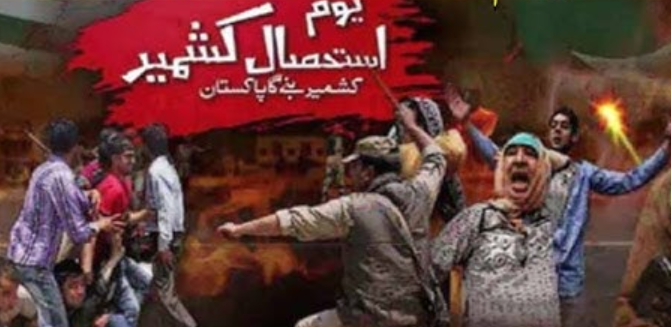Islamabad, August 4 – On the eve of Youm-e-Istehsal, a day observed across Pakistan and Azad Jammu and Kashmir to protest India’s 2019 revocation of Article 370, Kashmiri political figure Mushtaq Hussain delivered a scathing critique of New Delhi’s actions, calling the move a betrayal of trust and a deliberate strategy to dominate the region.
Mushtaq Hussain, Vice Chairman of the Jammu & Kashmir Islamic Political Party, described the abrogation of the region’s limited autonomy as more than a legal or constitutional change. “It was an act of aggression designed to cement political and territorial control over Jammu and Kashmir,” he said during a statement marking the solemn occasion.
A Legacy of Broken Promises
Hussain placed India’s August 5, 2019 action within a broader historical context, tracing a pattern that began with the arrival of Indian forces in Kashmir on October 27, 1947. According to him, successive Indian governments have consistently evaded international obligations, particularly those related to a UN-mandated plebiscite and military de-escalation in the disputed territory.
“For decades, India has ignored global commitments while entrenching its occupation,” he remarked. “Instead of seeking resolution through dialogue and law, New Delhi has opted for suppression.”
Escalation in Rights Abuses Since 2019
The aftermath of the constitutional overhaul, Hussain warned, has seen a sharp rise in rights violations. He pointed to widespread reports of extrajudicial killings, disappearances, arbitrary detentions, and clampdowns on peaceful dissent.
“Rather than easing tensions, the Indian government has intensified its grip,” he said, expressing concern over what he described as an orchestrated demographic shift. Hussain referenced the mass issuance of domicile certificates to outsiders and the seizure of local land as tactics aimed at altering the region’s identity and diluting its native population.
“Land Over People” – A Dangerous Mindset
Hussain also condemned inflammatory statements from certain Indian political voices, particularly those aligned with Hindu nationalist factions, who he claimed prioritize territorial conquest over the rights of Kashmiris. “When leaders declare that ‘Kashmir’s land is more important than its people,’ it reveals a colonizing mindset,” he said.
According to Hussain, such rhetoric and strategies reflect an agenda not just of occupation, but of cultural erasure—one that aims to disconnect Kashmir from its historical, religious, and social roots.
Resilience Amid Repression
Despite decades of state-imposed repression, Hussain praised the people of Jammu and Kashmir for maintaining a grassroots, peaceful resistance. “Their struggle is not born of foreign influence—it’s rooted in a deeply held demand for justice, dignity, and the internationally accepted right to self-determination,” he emphasized.
In closing, Hussain underscored that no amount of coercion can decide the future of Kashmir. “Force cannot write the destiny of a people. Real peace in South Asia will only come through justice for Kashmiris and respect for their voice.”
